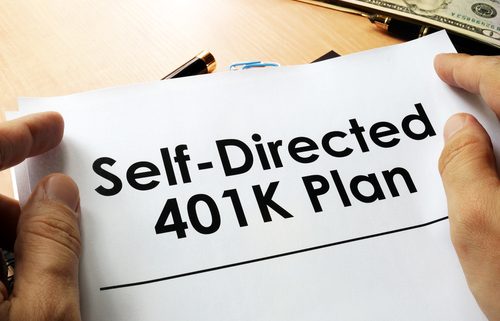Should You Ask Your Boss for a Self-Directed 401(k) Option
A Self-Directed 401(k) can be a powerful tool for saving for retirement. But what if you find yourself in the position of an employee and you are not sure you have the options to make this happen? Is it time to start a 401(k) of your own, or should you ask your boss for a retirement policy? Here’s what you’ll need to know:
Reasons to Consider a Self-Directed 401(k) Option
Why bother with Self-Direction in the first place? Are not the benefits of a 401(k) equal benefits no matter where you invest them? The tax benefits will be the same, but Self-Direction is a different question entirely.
The truth about retirement accounts is that self-direction is not really a distinct form of retirement plan. You are in charge of your retirement account, and retirement accounts can include all sorts of assets like real estate, precious metals, even tax liens. But sometimes you’re limited by the specific plans offered by a company 401(k) policy.
You can always open your own independent retirement account—such as a Roth IRA—that you can then self-direct. But for many people, their priority with be the 401(k). Here’s why:
- 401(k) plans have high contribution limits. While the limit for contributing to a Roth IRA is low ($6,000 for some people, in 2019), 401(k) plans have much higher contribution limits, which allows you to make up for lost time if you are only now getting started with your retirement savings plan.
- 401(k) produce immediate tax savings. Because contributing to a 401(k) comes from pre-tax dollars, you can realize immediate tax savings and give yourself more budgetary wiggle room on your existing paycheck. Investing through a Roth IRA, for example, comes from after-tax dollars.
- With a 401(k) match at your place of employment, you can save even more rapidly. An employer that matches some of your 401(k) contributions gives you a leg up for retirement, which is an inherent advantage that you cannot afford to ignore.
When you weigh your options, remember that 401(k) plans have these advantages built right in.
Should You Ask Your Boss for a Self-Directed 401(k) Plan?
This is where it gets tricky. While it’s hard to deny the power of a 401(k) plan for retirement savings, starting your own 401(k) account separately could mean that you miss out on advantages on employee matching.
The only solution in this case is to plead your case to an employer. And this can make things complicated, as an employer often either already has a retirement plan in place for the company or would be constrained by rules that would offer the same retirement plan to everyone in the company.
As an individual retirement investor, this can limit your options. But you should not feel discouraged, either. While the topic can be an important one to broach with your human resources representative, you may be encouraged to find that there are still independent retirement options for you to consider.
You will also have more control if you ever go into business for yourself, as you could potentially open a SEP-IRA or a Solo 401(k). These accounts often have similar advantages, especially with high contribution limits that help you take advantage of a larger income as your career progresses.
There’s no reason you cannot ask your employer about the potential options available to you. But even if you hit a dead end, there may be other ways you can go about maximizing your chances at a prosperous retirement.
Interested in learning more about Self-Directed IRAs? Contact American IRA, LLC at 866-7500-IRA (472) for a free consultation. Download our free guides or visit us online at www.AmericanIRA.com.



